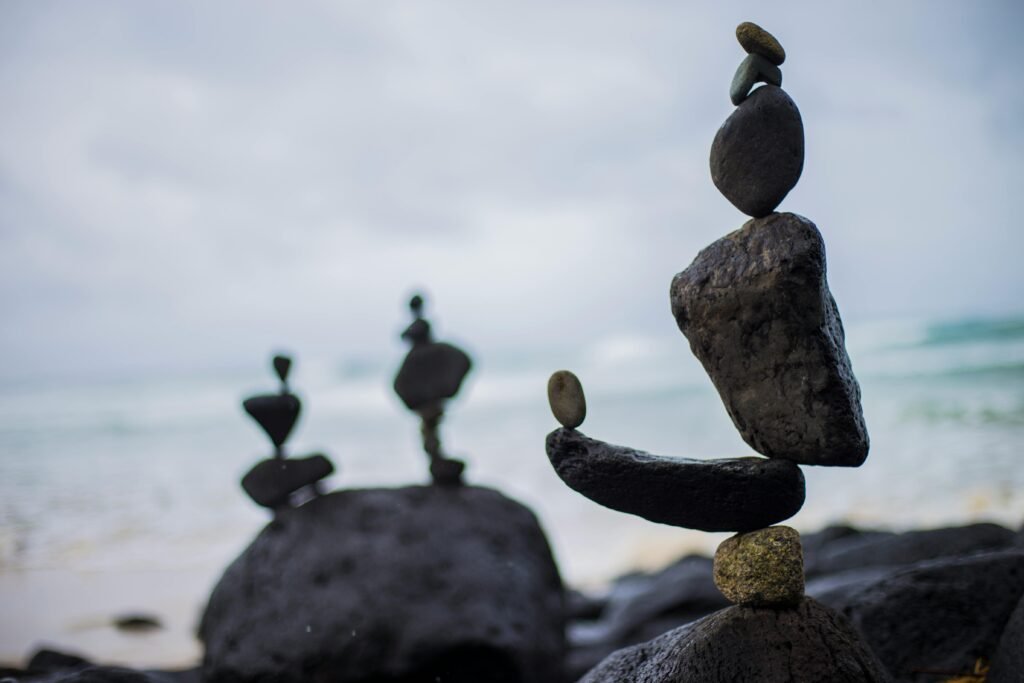Have you ever found yourself quick to shift blame when things go wrong? I’m no exception. But often, we see mistakes as a reflection of our own worthiness – and that’s a problem.
Here’s the thing about mistakes – they might not feel like it at first, but they can actually be turning points for growth and learning. If only we can see them as chances to improve, rather than just failures to avoid.
A Personal Responsibility Test: Imagine you’re covering for a less experienced colleague who’s facing a challenging situation. You have bailed them out, avoiding their being seen as a failure. The Boss asks you how it went (whatever the task). How do you reply? Do you give your colleague full credit, knowing they needed a win, or do you take full credit, while throwing them under the bus?
Same scenario, Reversed: Let’s say you messed up on a project, and there were factors beyond your control. Do you blame someone else or own up to your mistake, taking full responsibility and ensuring it doesn’t happen again?
It’s not always easy to admit when we’re wrong, but which type of person do you think is looked upon with more respect by management as well as peers?
I’ve learned from my years in the tech industry that one of the best ways to avoid being thrown under the bus is to first place yourself there. Own your mistakes with as much pride as you do victories. I promise that taking responsibility will not only change how you see yourself, but how others see you, as well.
The Dark Side of Blaming Others
- Emotional Dependency and Victim Mentality: Blaming others keeps you stuck. It fosters emotional dependence—waiting for someone else to fix things—rather than taking proactive steps yourself.
- Loss of Motivation and Drive: When you believe someone else is always at fault, you lose the incentive to change or improve. This kills ambition and motivation.
- Breakdown of Relationships: Constant blame damages trust and communication. It creates tension, resentment, and distance in personal and professional relationships.
- Chronic Stress and Mental Health Issues: Blame creates internal conflict. You might feel justified on the surface, but deep down, the dissonance can fuel anxiety, depression, and chronic stress.
- Blocked Personal Development: You can’t grow if you don’t believe there’s anything to improve. Blame keeps you stuck in a comfort-zone of denial.
Benefits of Taking Responsibility for Your Own Decisions.
- Increases Self-Awareness: When you take ownership of your choices, you start paying closer attention to your thoughts, behaviors, and patterns. This heightened self-awareness enables you to identify what’s working—and what’s not—so you can make smarter decisions moving forward.
- Builds Emotional Intelligence: Accepting responsibility helps you regulate emotions like guilt, anger, and shame in a healthy way. You become more attuned to how your actions affect others, which strengthens your empathy and emotional intelligence.
- Strengthens Your Decision-Making Skills: When you know you’ll be accountable, you’re more likely to think critically and make thoughtful choices. This leads to better outcomes and a more intentional life all-around.
- Fosters Personal Growth: Taking responsibility is a catalyst for transformation. You stop running from your mistakes and start learning from them. Each challenge becomes a stepping stone, not a setback.
- Enhances Your Confidence: There’s power in knowing you control your life. Even when things go wrong, you trust yourself to handle the consequences. That builds genuine confidence—not arrogance, but a quiet, steady belief in your ability to cope with whatever comes your way.
- Improves Relationships: People respect those who admit mistakes and work to fix them. Personal responsibility reduces conflict, increases trust, and deepens emotional bonds in your relationships.
- Reduces Stress and Anxiety: Blame creates a mental tug-of-war: you waste energy trying to justify actions or shift guilt. Taking responsibility removes that tension, giving you mental peace and clarity.
- Encourages Accountability in Others: When you model personal responsibility, others take notice. You create a ripple effect, encouraging your family, friends, and coworkers to do the same.
- Leads to Greater Career Success: Employers and clients value integrity and accountability. People who own their work and handle challenges head-on are more likely to get promoted, become trusted, and earn respect.
- Creates a Sense of Control Over Life: Responsibility gives you agency: you stop feeling like a victim of circumstances and start feeling like the author of your own story.
At The End of the Day
So, what’s the takeaway here? Owning up to our mistakes isn’t just about being honest with others – it’s about being honest with ourselves. When we take responsibility for our actions, we gain something much more valuable than just credibility or respect from our peers. We gain a sense of integrity, self-awareness, and a growth mindset that allows us to learn from our mistakes and become better versions of ourselves.
It’s not always easy, but I’ve found that the rewards far outweigh the risks. By taking ownership of our errors, we open ourselves up to new opportunities for learning, growth, and connection with others. So next time you mess up (and let’s face it, we all will), take a deep breath and say it out loud: ‘That was my mistake.’ Trust me, your future self – and those around you – will thank you.



